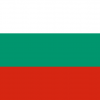Denmark - National Digital Decade strategic roadmap
The Danish strategic roadmap for the Digital Decade developed by the Ministry of Digital Government and Gender Equality of Denmark sets out the strategic goals to be achieved by 2030, monitoring their achievement, and the target paths and key measures have been developed.
The report uses the data in the Digital Decade Report 2023 on the National Base Value of the Digital Decade Targets, the EU baseline value for Digital Decade Targets in 2023 and the EU target value for 2030.
Denmark ranks well above the EU average when it comes to digital skills. 69% of people aged between 16 and 74 in Denmark have at least basic digital skills, which is significantly above the EU average of 54%. However, the country is still 11 percentage points below the 80% Digital Decade target for 2030. Denmark performs only slightly above the EU average in terms of the number of employed ICT specialists in the workforce (5.7% vs. the EU average of 4.6%), and this percentage has only slightly increased since 2019. 5.7% of graduates have studied ICT in Denmark (against 4.2% in the EU as a whole). The share has increased very slightly over the last five years. While a positive trend is discernible, this alone will be unlikely to enable Denmark to contribute meaningfully to achieving the Digital Decade target of 20 million ICT specialists in employment by 2030. With 22% the share of women among ICT specialists is above the EU average of 18.9%.
The Roadmap for Denmark consists of 4 chapters:
- Digital Skills
- Secure and Sustainable Digital Infrastructure
- Digital Transformation of Businesses
- Digitalisation of Public Services
Priorities for the development of digital skills
In 2022, the Danish government presented a comprehensive new national Strategy for Digitalization, based on the recommendations of the Digitalisation Partnership. The strategy includes an initiative to make technology part of compulsory education, skills development of teachers, a digital boost of higher education including adult higher education and training, and an upgrading of digital equipment in vocational education and training (VET) and more labour market training. The new strategy implicitly plans for investment in boosting the number of ICT or sector specialists with advanced use of digital skills, which seems unambitious.
Measures and initiatives contributing to the achievement of the targets
For the general objectives, Denmark has 28 measures and initiatives. These are measures and initiatives that contribute to the digital transition being shaped by European values of digital citizenship, promoting leadership and sovereignty and contributing to the green transition.
Measure 1: Strengthened efforts for digital education is aimed at boosting the digital education of children and young people, which is a prerequisite for being able to engage in a more digital world and acquire digital skills.
Measure 2: Danish Data Sciences Academy initiative focuses on promoting the number of digital experts and increasing the level of digital knowledge.
Denmark participates in 23 multi-country projects and collaborates on the digital transition, which contributes to several of the goals in the EU's policy program as well as to the general objectives.
Key challenges to overcome
Denmark currently has too few workers with digital skills in the labour force and too few ICT graduates. Companies lack people with digital competencies at all levels. There is fierce competition among companies to get students with a STEM background from university courses. In addition, the decline in the number of young people anticipated in the coming years will further intensify competition to hire digitally competent employees.
Strategy Details
The allocated or planned budget is indicated on the Roadmap for each of the measures separately.
The Roadmap has been developed by the Ministry of Digital Government and Gender Equality of Denmark in cooperation with other ministries, including industry, non-governmental, and academic organisations.






